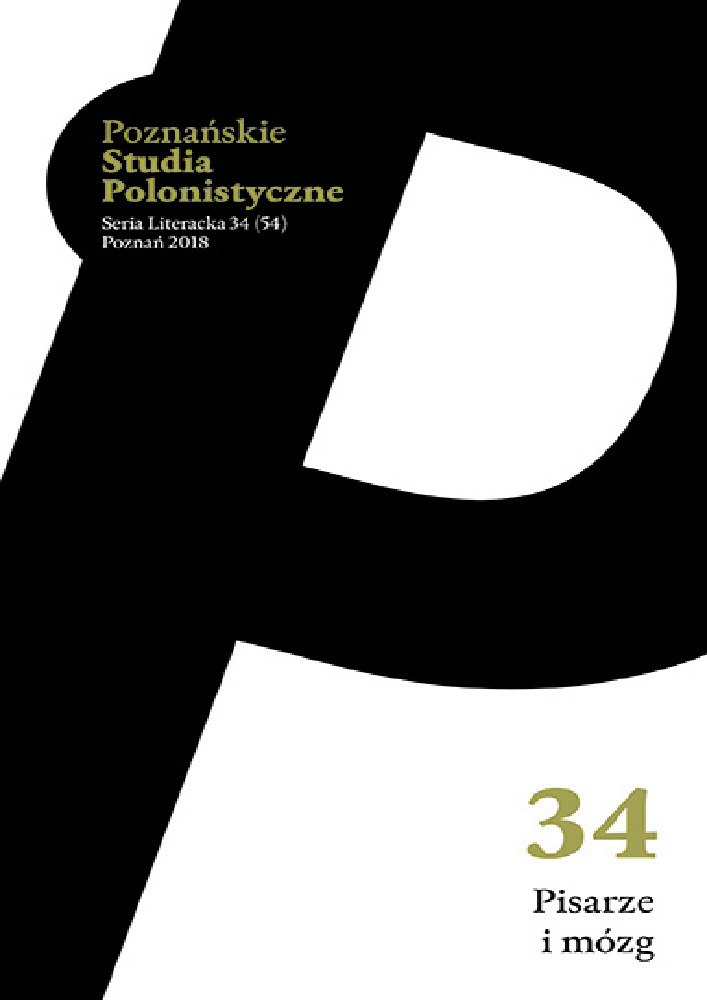Abstract
The article presents the character of the zombie popular in the contemporary audio-visual culture by placing it in the context of post humanist paradigm. He concentrates on the brain symbolism representative for the character, which, in the classical understanding of the living dead, due to dissimilar functioning, makes it different from humans and their brain-like traits: the mind and heart. Analysing the recent films such as Warm Bodies and The Girl with All the Gifts, he demonstrates the present inadequacy of such a division. Unlike the classical Night of the Living Dead, they are in line with post anthropocentric and new materialism philosophy, by differently symbolically depicting the role and place of the human in the world. It is presently tantamount to the place of non-humans: animals, objects, artefacts and monsters including the living dead. The change of the cultural and film paradigm observed in zombie horrors indicates a deeper strategy of authors of those popular films.References
Bakke Monika (2015), Bio-transfiguracje. Sztuka i estetyka posthumanizmu, Wydawnictwo Naukowe UAM, Poznań.
Bocian Katarzyna (2009), Odmienne stany świadomości. Antropologia ciała w polskiej literaturze fantastyczno-naukowej (1989-2005), Collegium Columbinum, Kraków.
Braidotti Rosi (2014), Po człowieku, przeł. Joanna Bednarek, Agnieszka Kowalczyk, Wydawnictwo Naukowe PWN, Warszawa.
Brzostek Dariusz (2009), Literatura i nierozum. Antropologia fantastyki grozy, Wydawnictwo Naukowe UMK, Toruń.
Domańska Ewa (2017), Nekros. Wprowadzenie do ontologii martwego ciała, Wydawnictwo Naukowe PWN, Warszawa.
Kołodyński Andrzej (1986), Seans z wampirem, Wydawnictwa Artystyczne i Filmowe, Warszawa.
Konefał Sebastian Jakub (2008), Ciało i lęk. Fizjologia śmierci w zombie horrorze oraz kulturze audiowizualnej, „Kwartalnik Filmowy”, nr 61, s. 20-39.
Marcela Mikołaj (2015), Monstruarium nowoczesne, Wydawnictwo Uniwersytetu Śląskiego, Katowice.
Wichowicz Amelia (2016), Zombie po ludzku, „Ekrany”, nr 1 (29), s. 24-28.
Wieczorkiewicz Anna (2009), Mostruarium, Wydawnictwo słowo/obraz terytoria, Gdańsk.
License
Authors
Authors of texts accepted for publication in „Poznańskie Studia Polonistyczne. Seria Literacka” are required to complete, sign and return to the editor's office the Agreement for granting a royalty-free license to works with a commitment to grant a CC sub-license.
Under the agreement, the authors of texts published in „Poznańskie Studia Polonistyczne. Seria Literacka” grant the Adam Mickiewicz University in Poznań a non-exclusive, royalty-free license and authorize the use of Attribution-NoDerivatives 4.0 International (CC BY-ND 4.0)Creative Commons sub-license.
The authors retain the right to continue the free disposal of the work.
Users
Interested Internet users are entitled to use works published in „Poznańskie Studia Polonistyczne. Seria Literacka” since 2016, for non-commercial purposes only, under the following conditions:
- attribution - obligation to provide, together with the distributed work, information about the authorship, title, source (link to the original work, DOI) and the license itself.
- no derivatives - the work must be preserved in its original form, without the author's consent it is not possible to distribute the modified work, such as translations, publications, etc.
Copyrights are reserved for all texts published before 2016.
Miscellaneous
Adam Mickiewicz University in Poznań retains the right to magazines as a whole (layout, graphic form, title, cover design, logo etc.).
